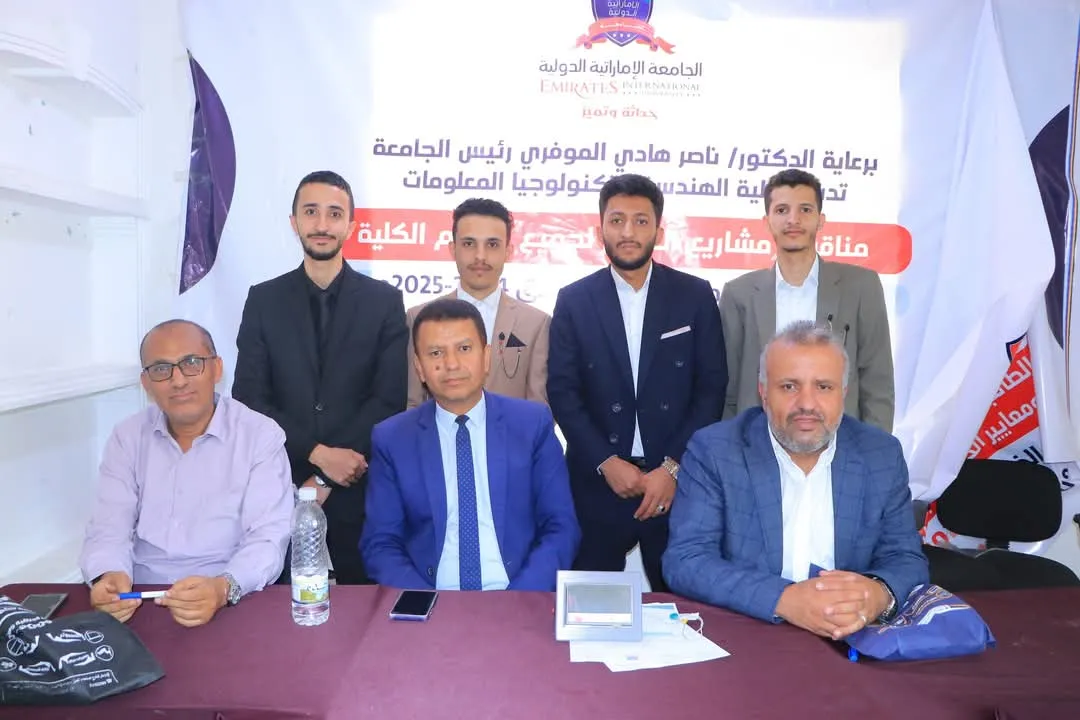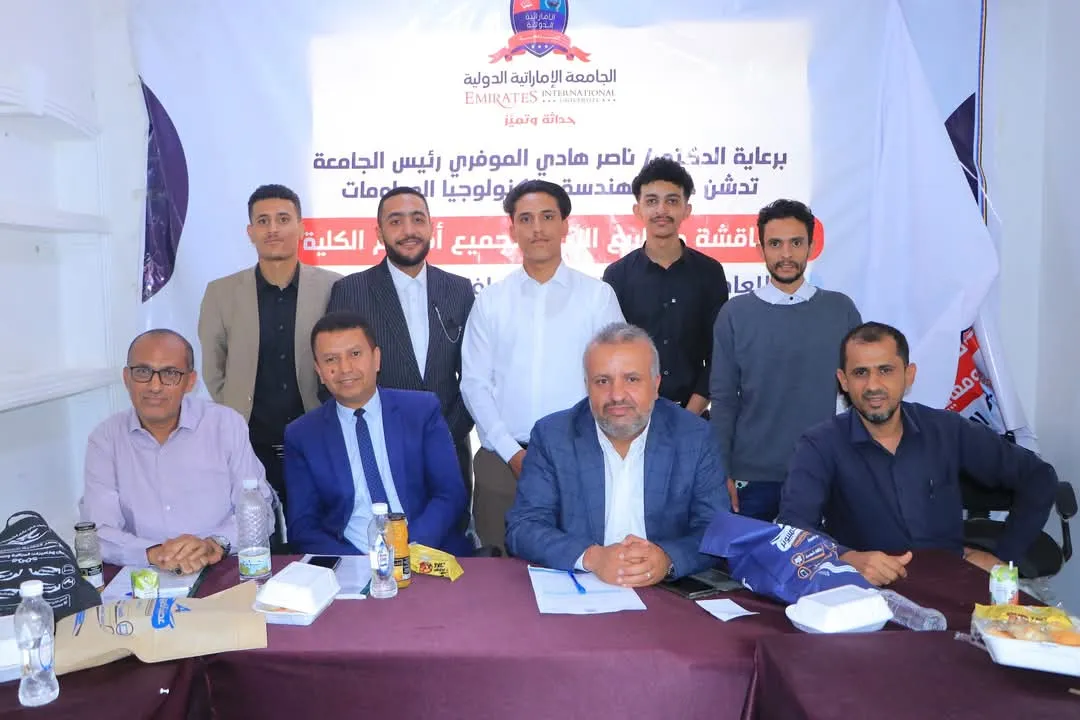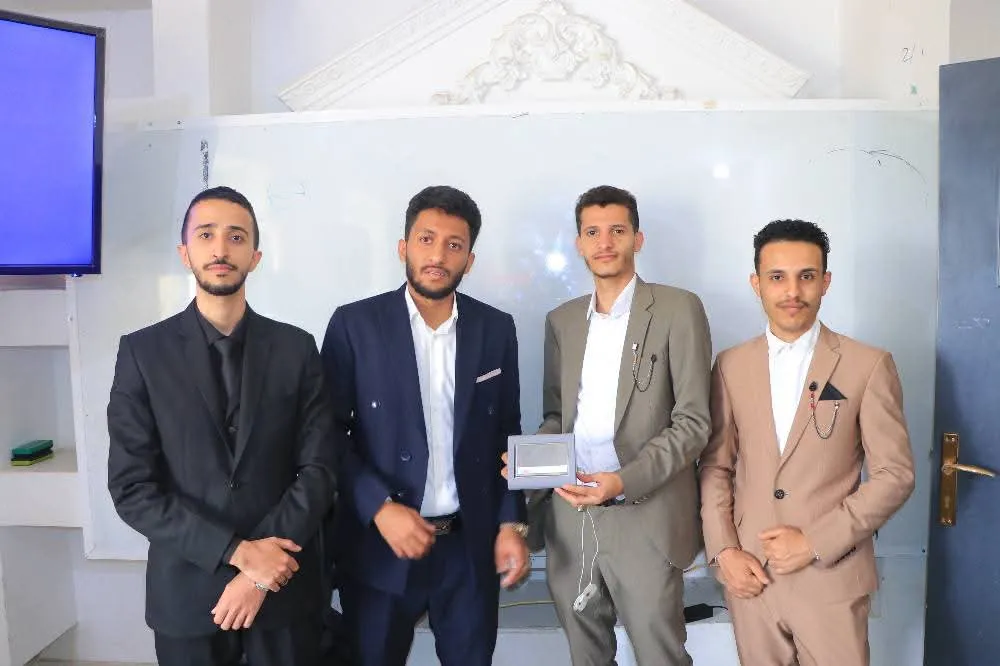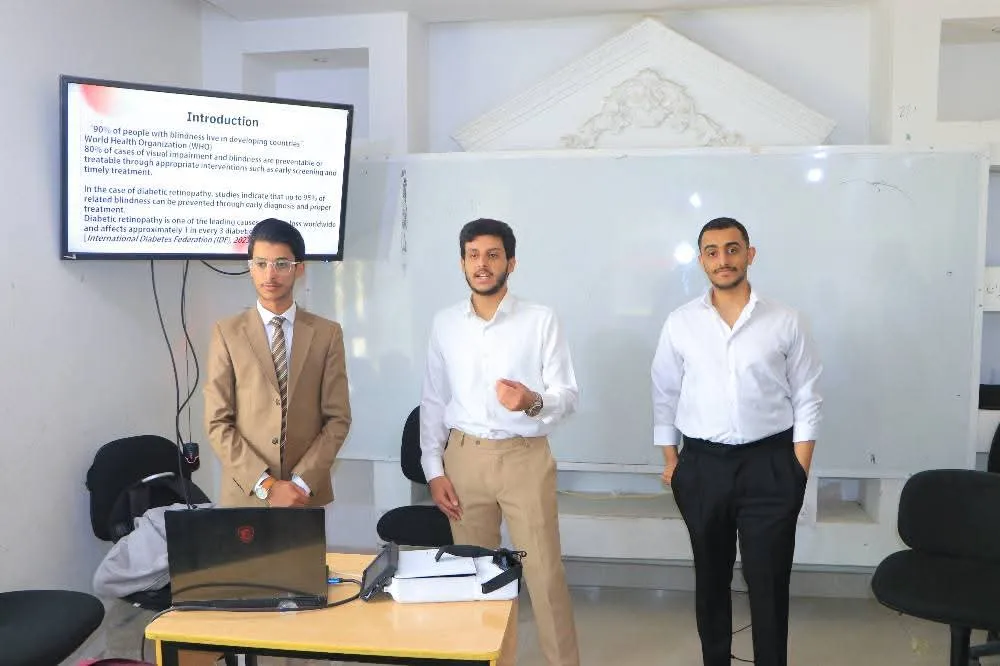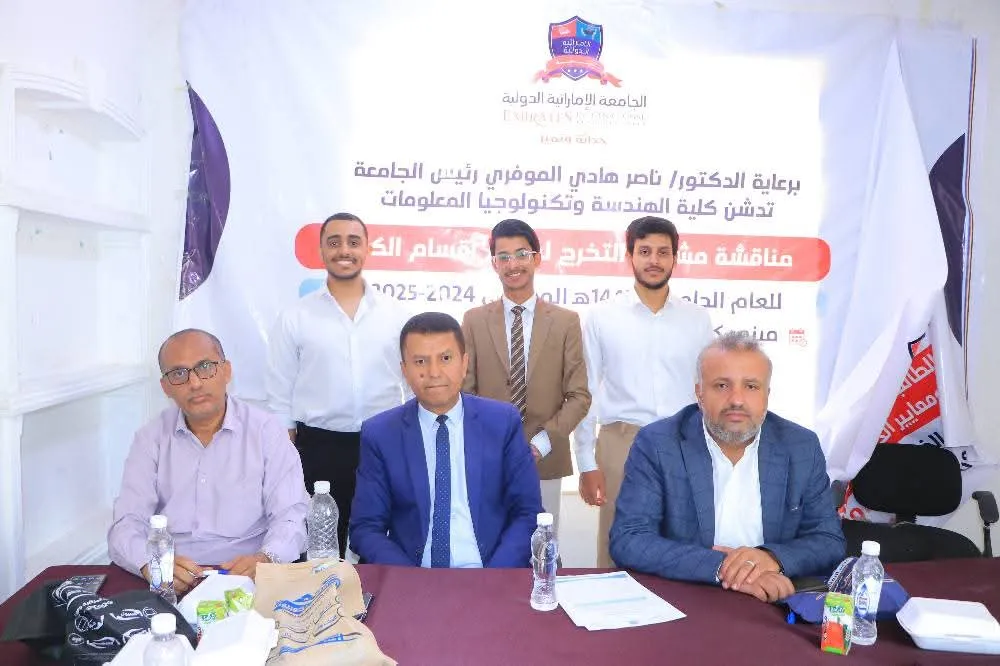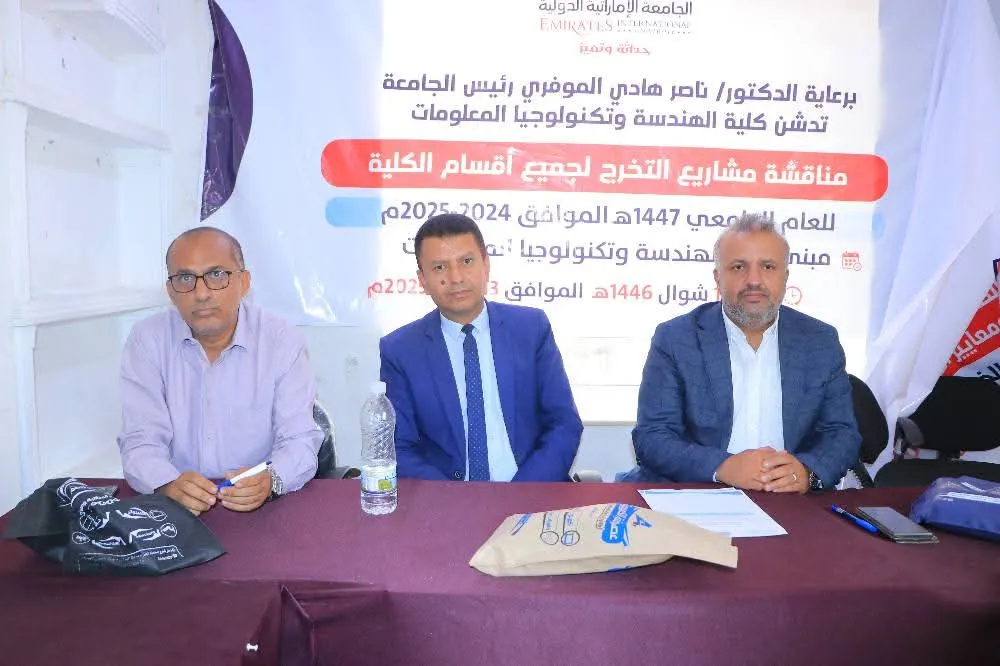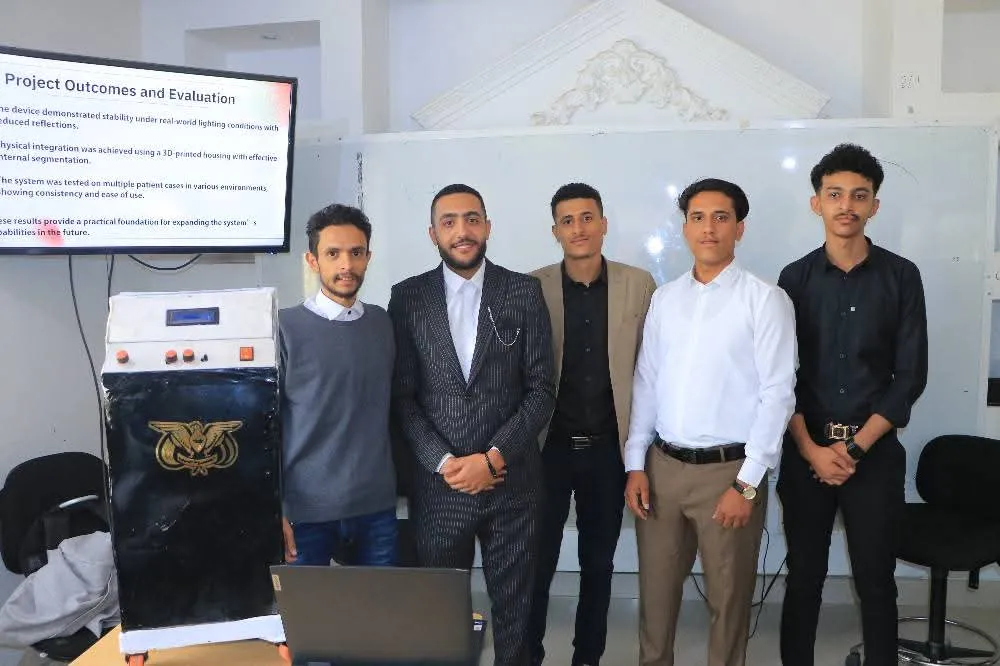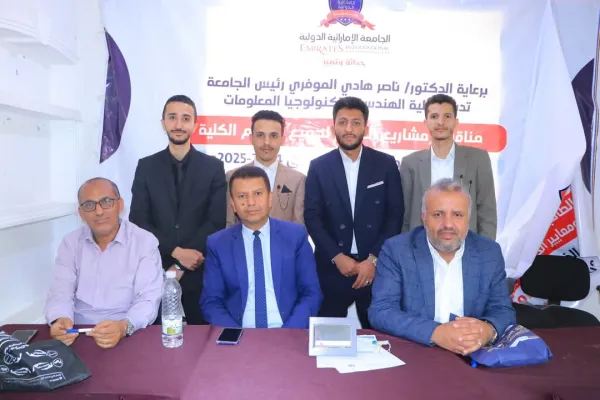
With Academic Excellence and Student Creativity: The Biomedical Engineering Department concludes its graduation project discussions for the academic year 1446 AH (2024-2025 AD).
University Media
In an inspiring academic setting, the result of years of study and diligence, the Biomedical Engineering Department in the College of Engineering and Information Technology at the United Arab Emirates University concluded its graduation project discussions for its students for the academic year 1446 AH (2024-2025 AD). The discussions were held amidst an atmosphere of pride and appreciation for the student groups' unique projects, embodying the spirit of innovation and addressing the challenges of contemporary healthcare and technology.
The discussions opened with a unique project embodying an advanced humanitarian and technical approach. The first group presented the project "A Non-Surgical Device for Monitoring Kidney Function Using Bioimpedance Technology." The project was presented by students Ali Saleh Bash, Muhammad Yahya Ghazi, Abdullah Al-Daylami, Alaa Al-Khawlani, and Omar Al-Zubairi, under the supervision of Dr. Mushtaq Al-Azzazi. The project addressed the design of a low-cost, portable device that enables continuous monitoring of kidney function outside of clinical settings. This represents a significant step forward in kidney patient care and reduces the burden of traditional follow-up. The project utilizes the AD5933 chip, advanced programming techniques, and an interactive touchscreen.
The second group highlighted one of the most prevalent visual challenges through their project "Design of an AI-Powered Retinal Imaging and Diagnostic Device." Students Salah Jawad, Salman Al-Sheikh, and Khaled Walid participated, under the supervision of Dr. Mushtaq Al-Azzazi. The project explored the development of a portable retinal imaging system capable of operating in low-resource environments. It features an Arabic graphical interface and intelligent analysis capabilities for selecting the optimal frame, enabling early diagnosis of retinal diseases such as diabetic retinopathy.
The third group presented their project "Development of a Self-Inductive Metal Heating Device," which relies on electromagnetic induction techniques to generate precise and safe heat without direct contact. The project was presented by students Osama Mohammed, Ilas Juh, Ahmed Badi, Hashem Al-Ghail, and Ahmed Ramzi, under the supervision of Dr. Mushtaq Al-Azazi, offering practical solutions for metal industries and medical thermal processes.
The fourth group presented a project that serves the field of medical rehabilitation by designing a "Hand Stimulator for Hemiplegia Patients," with the participation of students Younis Al-Sada, Abdulaziz Al-Salahi, Mustafa Bero, Suhail Al-Shawafi, and Mohammed Al-Ansi. The device combines electrical and mechanical stimulation to strengthen hand muscles and improve motor ability, enhancing patients' independence and shortening traditional treatment periods.
The fifth group combined three innovative therapeutic techniques in their project, "A Multi-Functional Therapeutic Device," which combines pulsed electromagnetic field (PEMF) therapy, electrical muscle stimulation (EMS), and biocompatibility therapy. The project involved students Abdul Karim Al-Ahmar, Hassan Al-Nusairi, Louay Al-Asimi, Ahlam Al-Sarihi, and Saba Al-Dhamin, under the supervision of Dr. Al-Azzizi. The device demonstrated a high degree of customization and safety, offering a promising therapeutic alternative in alternative medicine.
The discussion committee consisted of a select group of specialized academics, including Dr. Mohammed Al-Alafi, Head of the Department of Medical Equipment Engineering; Dr. Farouq Al-Fahidi, Head of the Department of Information Technology; Dr. Radwan Al-Badhiji, Head of the Department of Mechatronics Engineering; and Dr. Malik Al-Jabri and Dr. Hisham Aqlan, faculty members.
At the conclusion of the discussion, the committee expressed its admiration for the high level demonstrated by the students and commended the efforts of the academic supervisors, which embodied the spirit of scientific research and creative thinking. The committee also commended the students' ability to combine theoretical knowledge with practical application in projects that address real societal needs.
The Department of Biomedical Engineering remains a platform for excellence and a factory of minds, where solutions are formulated and ideas are germinated that carry at their core a message of knowledge and compassion, paving the way for smarter, more comprehensive healthcare.
Website:
https://eiu.edu.ye
#Emirates_International_University
#Modernity_of_Excellence
#EIU

